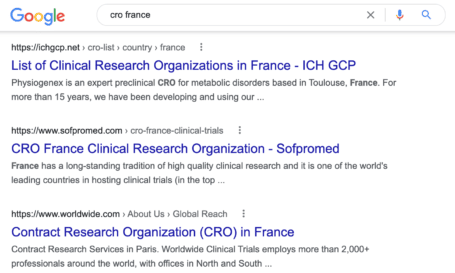Identifying a keyword category and then creating a product (webpages at scale) to address that whole search intent, will generate the biggest wins possible in SEO. However, they won’t be easy to find nor pursue.

I define keyword categories as a set of keywords sharing a root along with a unique modifier.
For example, I partnered with a Contract Research Organization (CRO) that had vast search intent with location modifiers, so CRO searched for by country, state & city (ex: CRO France). With 60+ offices, we used a template to quickly create a specific listing for each location & region. Collectively, this earned tremendous organic search volume.
No SEO can guarantee a specific keyword ranking. However, when you target a category with a valuable solution, you’ll rank for many less competitive variations early on. This creates a virtuous cycle in that search engines find relevant content & authority within a niche.
However, sometimes the root keyword for each phrase is not industry-specific. It may be generic like “near me” or “examples” or “templates.” It takes broad keyword research to find the pattern, and individual volumes may look unimpressive.
Once you discover this, it’s worth putting in the effort to estimate traffic & revenue potential. You must also find out if your business can meet that intent. Unfortunately, these efforts involve more resources than just an SEO but engineers, designers, content writers and more, but with a much, much greater return!
